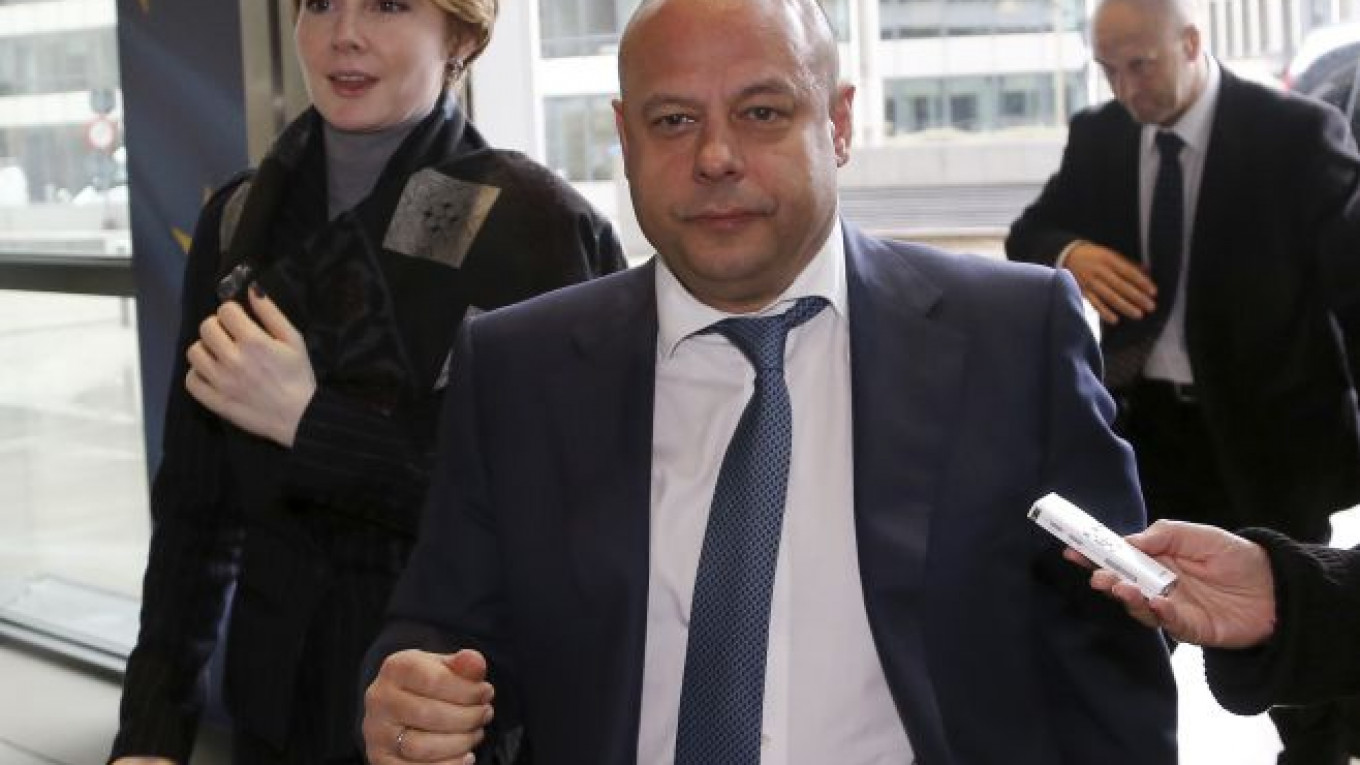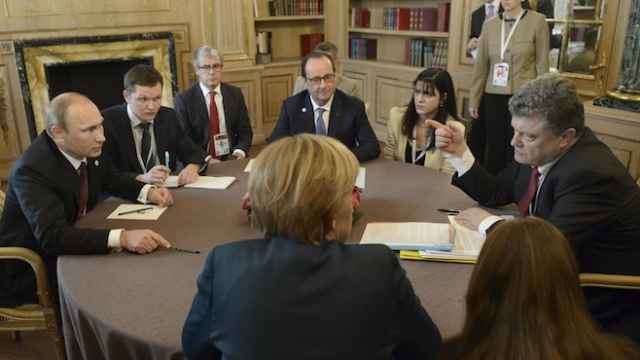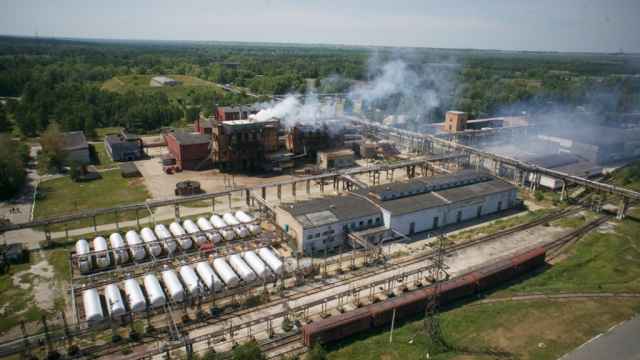Russia and Ukraine failed to reach an accord on gas supplies for the coming winter in EU-brokered talks on Tuesday but agreed to meet again in Brussels in a week in the hope of ironing out problems over Kiev's ability to pay.
After a day of talks widely expected to be the final word, European Energy Commissioner Guenther Oettinger told a news conference the three parties agreed the price Ukraine would pay Russia's Gazprom — $385 per thousand cubic meters — as long as it paid in advance for the deliveries.
But Russian Energy Minister Alexander Novak said Moscow was still seeking assurances on how Kiev, which earlier in the day asked the EU for a further 2 billion euros ($2.55 billion) in credit, would find the money to pay Moscow for its energy.
Dependent on Western aid, Ukraine is in a weak position in relation to its former Soviet master in Moscow, though Russia's reasons were unclear for wanting further assurances on finances, beyond an agreement to supply gas only for cash up front.
Citing unpaid bills worth more than $5 billion, Russia cut off gas flows to Kiev in mid-June. The move added to East-West tensions sparked by Russia's annexation of Ukraine's Crimea and conflict in Russian-speaking eastern Ukraine.
The two countries are fighting in an international court over the debt, but Oettinger noted that Ukraine had agreed to pay off $3.1 billion in two tranches this year to help unblock its access to gas over the winter.
European Union states, many also dependent on Russian gas and locked in a trade war with Moscow over Ukraine, fear their own supplies could be disrupted if the issue is not resolved.
Despite cutting off gas for Kiev, Russian state exporter Gazprom has not halted supplies flowing through the country en route to EU member states. Novak again ruled out Gazprom's agreeing to let EU states re-export its gas to Ukraine.
The European Union relies on Russia for around a third of its gas, roughly half of which flows via Ukraine. Two previous price rows between Russia and Ukraine in 2006 and 2009 did have an impact on supply to EU nations.
The row this time is complicated by the deterioration in relations between Moscow and Kiev, although EU leaders also say solving it could help to defuse wider tensions.
Reasons to Get a Deal
U.S. and EU economic sanctions against Russia, plus a fall in the price of oil, have increased incentives for Moscow to resolve the dispute. State-controlled Gazprom earns around $6 billion a month selling gas to the EU.
The EU's Oettinger has been brokering talks since May after Russian President Vladimir Putin called on the EU to intervene.
"We made another step towards a possible solution and are close to an agreement on important elements. Others still need to be addressed, such as the financial gap," Oettinger said following Tuesday's talks.
"At the next meeting, which we hope will be the final trilateral meeting, next Wednesday here in Brussels, we will be able to reach a decision and we'll have the signature of all the partners."
A summit held in Milan on Friday produced hopes for a breakthrough, after Ukraine President Petro Poroshenko met Putin and said they had reached a preliminary agreement on a gas price until March 31. That price, of $385 per 1,000 cubic meters, is higher than the average of some $350 that Gazprom charges EU companies but $100 less than Russia had demanded.
Putin, meanwhile, said Ukraine's debt for Russian gas supplies stood at $4.5 billion, considerably less than the $5.3 billion previously demanded by Gazprom.
However, in Brussels on Tuesday, Novak said Moscow was still not satisfied with agreeing to advance payments for new gas without further assurances, notably from Ukraine's Western allies, about where the money would come from.
"Today we should establish the availability of financial resources for advance payments for November and December," he said. "We haven't received these assurances, either from Naftogaz and Ukraine or the European Commission."
Kiev had balked at the earlier Russian calculation of its debt, arguing that the price used to calculate the arrears should be $268.50, which is what it was paying in the first quarter of this year. Oettinger said that price would be used to calculate how much gas had been paid for with the $3.1 billion to be transferred this year.
The EU commissioner said Ukraine may require around 4 billion cubic meters of Russian gas this winter.
Kiev faces a $3.5 billion funding shortfall for this year and next, but the International Monetary Fund has said the government should be able to cover most of it with planned debt issues and an expected $900 million in further donor support.
On the sidelines of the gas talks on Tuesday, the Commission said it would consider a request from Ukraine for a further loan of 2 billion euros.
That would be on top of 1.6 billion euros handed out so far in cooperation with the International Monetary Fund.
A Message from The Moscow Times:
Dear readers,
We are facing unprecedented challenges. Russia's Prosecutor General's Office has designated The Moscow Times as an "undesirable" organization, criminalizing our work and putting our staff at risk of prosecution. This follows our earlier unjust labeling as a "foreign agent."
These actions are direct attempts to silence independent journalism in Russia. The authorities claim our work "discredits the decisions of the Russian leadership." We see things differently: we strive to provide accurate, unbiased reporting on Russia.
We, the journalists of The Moscow Times, refuse to be silenced. But to continue our work, we need your help.
Your support, no matter how small, makes a world of difference. If you can, please support us monthly starting from just $2. It's quick to set up, and every contribution makes a significant impact.
By supporting The Moscow Times, you're defending open, independent journalism in the face of repression. Thank you for standing with us.
Remind me later.






